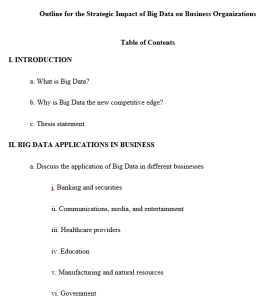Posted: March 26th, 2023
10 tips for writing a perfect essay
Writing a perfect essay is a task that requires patience, skill, and a good understanding of the topic you are writing about. A well-written essay can help you achieve excellent grades and impress your professors. If you are looking to improve your essay writing skills, here are ten tips to help you create a perfect essay:

Summary
1. Understand the assignment
Understand the assignment: Understanding the assignment is a crucial first step in writing a perfect essay. Take the time to carefully read the assignment instructions, including any prompts or guidelines given by your professor or instructor. Make sure you understand the purpose of the assignment and any specific requirements, such as the length, formatting, and citation style. If you’re unsure about any aspect of the assignment, don’t hesitate to ask your professor for clarification. By fully understanding the assignment, you can ensure that your essay meets the expectations and requirements set by your instructor, setting you up for success.
2. Choose an interesting topic
Choosing an interesting topic is an essential aspect of writing a great essay. When selecting a topic, it is important to consider your audience and your personal interests. A topic that is interesting to you will likely be more engaging to your readers as well. Additionally, it is essential to ensure that the topic is relevant to the assignment’s requirements and guidelines. Consider brainstorming several topics, researching each one, and then choosing the one that aligns with the assignment’s objectives and interests you the most. By choosing an interesting and relevant topic, you will be able to engage your audience and create a well-written essay.
3. Do your research
Doing thorough research is a crucial aspect of writing a perfect essay. It is essential to have a clear understanding of the topic and to gather relevant information from credible sources. Research helps to support your arguments and provides evidence to back up your claims.
To begin your research, start by gathering information from reliable sources such as academic journals, books, and reputable websites. Take note of the key ideas and arguments presented and consider how they relate to your topic. It is also important to critically evaluate your sources and check for accuracy, bias, and relevance to your topic.
Another key aspect of research is to keep track of your sources and cite them properly. This not only ensures that you avoid plagiarism but also demonstrates your credibility as a writer. Overall, taking the time to do thorough research is critical to writing a high-quality essay that effectively communicates your ideas and arguments to your audience.
4. Create an outline

sample outline
Creating an outline is an essential step in the essay writing process. It helps to organize your thoughts and ideas and provides a clear structure for your essay. The outline should include the main points you want to cover in your essay, as well as any supporting details or evidence to back up your arguments. It can be as simple or as detailed as you need it to be, depending on the complexity of your topic and the length of your essay.
Start by brainstorming and jotting down all the ideas you have on the topic. Once you have a list of ideas, arrange them in a logical order and group similar ideas together. This will help you to create a coherent and cohesive essay. Your outline should also include an introduction, body, and conclusion. In the introduction, you should provide some background information on the topic and clearly state your thesis statement. In the body, you should provide supporting evidence for your arguments, and in the conclusion, you should summarize your main points and restate your thesis. By following this structure and creating a clear outline, you can ensure that your essay is well-organized and easy to follow.
5. Write a compelling introduction
The introduction is one of the most critical parts of an essay, as it sets the tone for the entire piece and captures the reader’s attention. Here are five tips for writing a compelling introduction:
1. Start with a hook: The hook is the opening sentence of your introduction, and it should be designed to capture the reader’s attention and encourage them to keep reading. There are several ways to hook the reader, including using a quote, an interesting fact or statistic, a question, or a bold statement.
2. Provide background information: After you’ve hooked the reader, it’s essential to provide some background information on the topic you’ll be discussing. This information should help the reader understand the context of the essay and provide a foundation for the rest of the piece. It’s important to strike a balance between providing enough information to give the reader context without overwhelming them with unnecessary details.
3. State your thesis: The thesis statement is the central idea or argument of your essay, and it should be clearly stated in the introduction. The thesis statement should be specific and concise, and it should provide a roadmap for the rest of the essay. Make sure your thesis statement is arguable and that you’ll be able to support it with evidence throughout the rest of the essay.
4. Preview your main points: After you’ve stated your thesis, it’s a good idea to preview the main points you’ll be discussing in the essay. This will help the reader understand the structure of the essay and will give them a sense of what to expect in the body paragraphs.
5. Keep it concise: While it’s important to provide enough information to hook the reader and set the context, it’s also essential to keep the introduction concise. Aim for a length of around one paragraph, and avoid getting bogged down in unnecessary details or explanations. A clear and concise introduction will help ensure that the reader stays engaged and focused on the main ideas of the essay.
6. Use evidence to support your arguments
Using evidence to support arguments is a crucial aspect of writing a high-quality essay. Evidence refers to the facts, examples, statistics, and other information that you use to support your ideas and arguments. By using evidence, you can add credibility and persuasiveness to your essay, and demonstrate that you have done the research and understand the topic.
When using evidence, it is important to ensure that it is relevant, accurate, and reliable. You should choose evidence that directly supports your arguments and avoid using information that is outdated or incorrect. It is also important to use a variety of sources, such as academic journals, books, and reputable websites, to ensure that your evidence is diverse and well-rounded. Additionally, when using statistics or other numerical data, it is important to ensure that you accurately represent the data and provide proper context to avoid any misinterpretation or confusion.
When incorporating evidence into your essay, it is important to use it effectively. You should always provide a clear and concise explanation of the evidence and how it supports your argument. This can be done through direct quotes, paraphrasing, or summarizing the evidence in your own words. It is also important to provide citations for all of your sources to give credit to the original authors and avoid plagiarism. By effectively using evidence to support your arguments, you can create a well-supported and persuasive essay that engages your reader and demonstrates your understanding of the topic.
7. Stay focused
Staying focused is crucial when writing an essay. Once you have a clear idea of your topic and main arguments, it’s important to stay on track and avoid getting sidetracked by irrelevant information. One way to do this is to create an outline before you start writing, which can help you stay organized and focused throughout the writing process. Additionally, it can be helpful to refer back to your outline and make sure that each paragraph and sentence is contributing to your main argument. If you find yourself getting off-topic or including irrelevant information, take a step back and refocus your thoughts on the main argument of your essay.
Another way to stay focused is to be aware of your writing style. Make sure that your writing is clear, concise, and easy to follow. Avoid using overly complicated language or jargon, which can confuse readers and distract from your main argument. Instead, aim for a straightforward writing style that clearly conveys your main points. Additionally, make sure to use transitional phrases between sentences and paragraphs to help guide your reader through your argument. By staying focused and being mindful of your writing style, you can create a more compelling and persuasive essay.
8. Use clear and concise language
Using clear and concise language is crucial for effective communication in essay writing. Your audience should be able to understand the points you’re making without any confusion or misinterpretation. Use precise vocabulary that accurately conveys your message and avoid using ambiguous terms or jargon that might be unclear to your readers. You can achieve clarity by structuring your sentences well and organizing your thoughts logically. Ensure that your ideas flow smoothly and are connected in a coherent manner.
Additionally, using clear and concise language enhances the readability of your essay. Remember that your readers are looking to gain knowledge and insights from your writing, so presenting your ideas in a way that is easy to understand is essential. Avoid using unnecessarily long sentences, convoluted phrasing, and technical language that might make your essay seem tedious to read. Shorter, well-constructed sentences are easier to follow and understand. Furthermore, make sure to proofread your essay carefully to ensure that it is free from grammatical and spelling errors that could detract from its clarity.
9. Edit and proofread
After completing the essay, it is essential to spend some time editing and proofreading to ensure that the final product is polished and error-free. Editing involves reviewing the essay for clarity, coherence, and overall effectiveness. It involves checking the flow of ideas, the organization of the essay, and the overall quality of the writing. Editing allows you to identify areas that need improvement and make the necessary changes.
Proofreading, on the other hand, is the process of reviewing the essay for spelling, grammar, and punctuation errors. It involves carefully reading the essay to identify any mistakes and correcting them. Proofreading ensures that the essay is free from errors and is easy to read and understand. It is important to take the time to proofread the essay thoroughly, as even a small mistake can detract from the overall quality of the essay. By editing and proofreading your essay, you can ensure that it is well-written, clear, and error-free, which will help you to get the best possible grade.
10. Get feedback
Getting feedback is a crucial step in improving the quality of your essay. After spending hours writing and editing, it can be easy to become too close to your work and overlook errors or areas that could use improvement. Getting an outside perspective can help you identify these areas and make necessary changes.
There are a few ways to get feedback on your essay. You can ask a friend, family member, or classmate to read your essay and provide feedback. You can also seek the help of a tutor, writing center, or professional editor. It’s important to keep an open mind and be receptive to constructive criticism. Remember that the goal of feedback is to help you improve your writing, not to tear you down. Take any criticisms or suggestions as opportunities to learn and grow as a writer.
By following these ten tips, you can create a perfect essay that will earn you excellent grades. Remember, writing a great essay takes time and practice, so keep honing your skills and striving for excellence.
Expert paper writers are just a few clicks away
Place an order in 3 easy steps. Takes less than 5 mins.